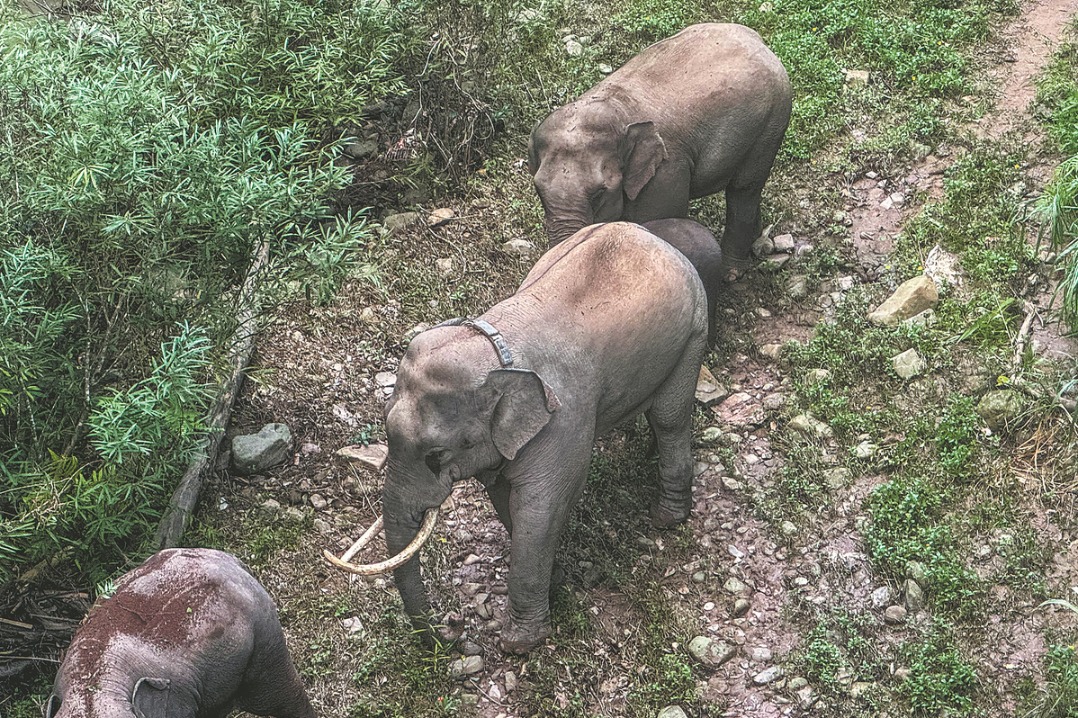South Korea-born panda to make debut in Sichuan


After more than two months of quarantine and transitional adaptation, giant panda Fu Bao will meet the public at the Wolong Shenshuping Base of the China Conservation and Research Center for the Giant Panda in Sichuan province this week.
The female panda will make her debut at the base on Wednesday, and will then be on show regularly. Base employees are advising visitors to arrange their trips carefully to avoid big crowds.
Fu Bao left the Samsung Everland Park in South Korea and arrived in China in early April, when she was placed in quarantine at the base. She has adapted well to her new surroundings and has established trust with her keepers, according to the giant panda center. After quarantine, Fu Bao moved to the breeding area of the base. A technical team developed a plan to help her transition to her new life through behavioral training, physical contact and communication with the keepers.
She has also been enjoying the food being provided.
"After more than two months of adaptation, Fu Bao has adapted to the current season's bamboo. She loves to eat bitter bamboo shoots, bitter bamboo leaves and white bamboo shoots," said Xu Xiang, a keeper at the Wolong Shenshuping Base, adding that it provides different types of bamboo for pandas in different seasons.
"We feed Fu Bao two to three types of bamboo daily for her to choose from, and we also feed her bamboo shoots. As for supplements, Fu Bao prefers apples and steamed buns," he said.
In March 2016, female giant panda Hua Ni, also known as Ai Bao, and male giant panda Yuan Xin, also known as Le Bao, arrived at the Samsung Everland Park in South Korea, initiating Sino-Korean cooperation in giant panda research. Fu Bao was born to the pair at the park in July 2020.
According to the agreement on giant panda conservation research cooperation, panda cubs born overseas are sent to China between age 2 and 4.
The giant panda research center said that over the past eight years, China and South Korea have actively cooperated in giant panda conservation breeding, disease prevention and control, public education and other scientific areas to promote the conservation of the endangered species in both countries and enhance friendly relations between the Chinese and Korean people.
The keepers said that since Fu Bao's arrival in China, she has gradually integrated into the local panda population through communication windows between enclosures, interacting with neighboring pandas through sounds and scents. Observations and assessments by the care team indicate that she is ready to meet the public.
Cheng Jianbin, an expert at the Wolong Shenshuping Base, said that it selected a suitable enclosure for Fu Bao and gave her ample time to adapt to the new environment. To ensure a smooth public introduction, the base has undertaken tasks such as cleaning, disinfection, safety checks and security measures, aiming to minimize the potential stress some pandas experience once they are exhibited to the public. Considering factors such as park capacity and Fu Bao's adaptation process, the base will limit the number of visitors on Wednesday.
A video blogger surnamed Zhu has been permanently banned from visiting the giant panda center's bases because he was caught livestreaming from the surroundings of the Wolong Shenshuping Base following Fu Bao's arrival, broadcasting from non-exhibition areas such as the quarantine zone, office and research buildings, as well as the breeding area, ignoring notices from local authorities and violating regulations, the center said.
- Travel boom continues as Chinese enjoy National Day holiday
- Xi Focus: Leading the way to Chinese modernization through sci-tech innovation
- Over 290,000 administrative reconsideration cases received in China in H1
- Festive greetings from Pakistan to China, China Daily
- In pics: autumn harvest across China
- A glimpse into China's 75 years of innovation through IP endeavors





































